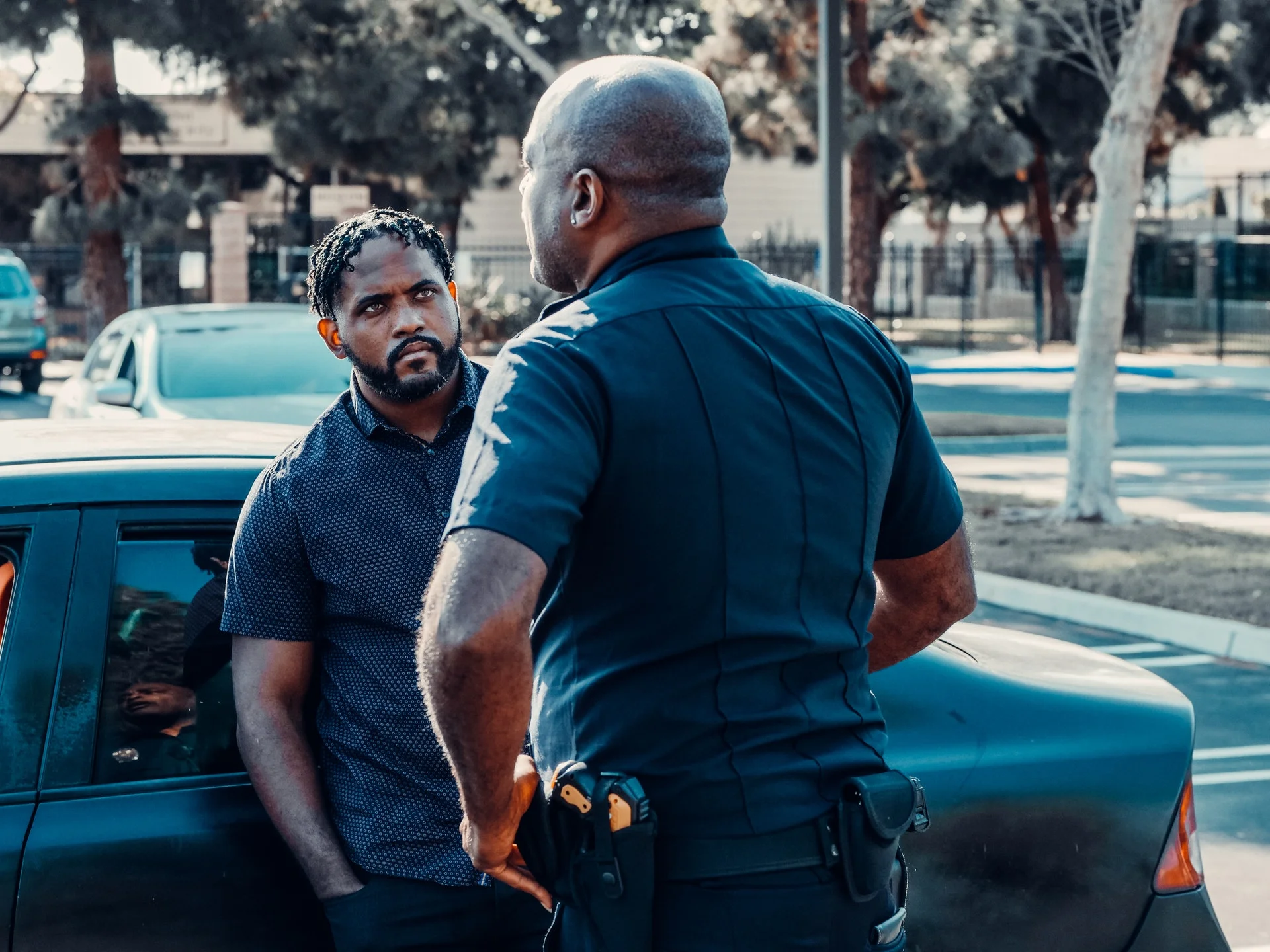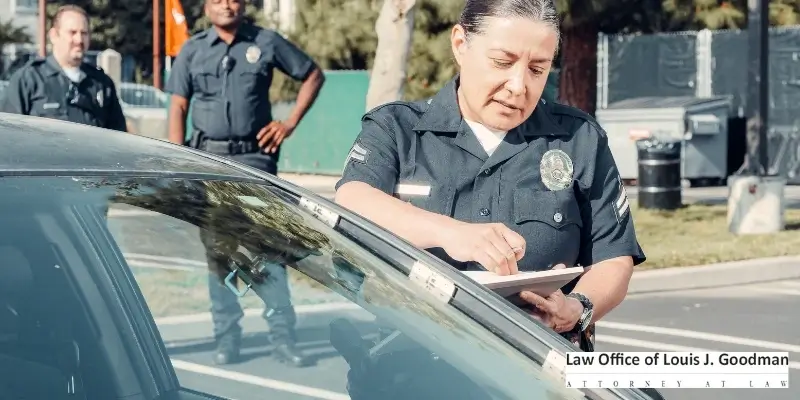|
|
Last Modified on Sep 11, 2025
Defendants in California DUI charges per California Vehicle Code 23152(a) and 23152(b) are usually given probation. If offenders properly comply with and fulfill particular requirements imposed by the court at sentencing, they can avoid receiving the maximum penalty. A probation violation is usually the result of failing to follow a court ruling.
If you are charged with DUI in California, you will be sentenced to at least three years of probation. Probation is a time of intense examination during which you must demonstrate that you have changed and will be a law-abiding individual in the future. It comes with a slew of unique requirements. If you violate any of these terms, you will be charged with a probation violation.
Having a qualified DUI lawyer handle your DUI and get you a result you can live with is the best way to prevent a probation violation. If you’ve already violated probation, a Hayward DUI attorney may be able to assist you to keep your penalties to a bare minimum.
Call Louis J. Goodman today at 510-582-9090 for a free consultation!
What is a DUI Probation Violation?
The length of a California DUI sentencing can differ based on a number of factors, including the court, the judges, the level of intoxication, the defendant’s age, the driver’s behavior, and if the individual has previously been convicted of DUIs or other crimes. Individuals are often sentenced to probation for 3 to 5 years, with the expectation that they will undergo a drunk driving program(s), pay court fines and costs, not conduct any criminal violations, and not drive with any detectable quantity of alcohol in their system. This is not an entire list, and it may differ from one court to the next based on the facts of the case.
A California DUI offender must pay significant penalties, and present evidence of participation and/or accomplishment in the numerous probationary procedures mandated by conviction, regardless of the probation terms imposed during sentencing. The specifics vary by court, but a DUI offender must usually meet a number of deadlines while the court determines the parameters of his or her punishment.
If a California DUI offender fails to fulfill a court-ordered duty, it is considered a probation breach. In this case, the court is likely to issue a summons for the person’s arrest. When someone is arrested, they must stand in front of a court where they are given consequences.
Probation violations can also occur if a person is charged with a new crime or is caught by police with any quantity of alcohol in their blood (even if their blood alcohol content is under .08, the legal limit for DUI). Driving without a legal driving license or without proper vehicle insurance are frequent infractions that result in probation violations.

All of the others below will qualify as a breach of your probation in a DUI case:
- If you have any alcohol in your body, you should not drive. If you’re stopped over and a breathing or blood test reveals you’ve been drinking, your DUI probation is instantly broken. This is significantly more stringent than it is for other citizens. In most cases, 0.08 percent blood alcohol content is the limitation for alcohol in your system (BAC). With your probation, however, the limit is 0.01 percent — the tiniest amount detectable. It’s the same if you’re under the influence of any medications.
- When you fail to provide proof of participation in a court-ordered program. At the very least, your probation will force you to attend DUI school. You could also be required to participate in drinking and/or drug therapy, community work, a preventative program, or other specialized programs. You must present documentation of enrollment in these programs to the court. It’s a violation if you don’t.
- If you don’t finish the programs. It is not sufficient to just enroll in a program. It is mandatory that you participate and finish it. After completing the course, you will receive a certificate. It is a violation if you do not present this document to the court by the deadline.
- If you haven’t paid the court-mandated fines. You will be required to pay reparations if you cause an accident or harm someone. Failure to present the payment receipt by the due date is a probation violation too.
- If you don’t follow the conditions of your probation. You may be required to have an ignition interlock installed in your car, carry a SCRAM wristband, or comply with other particular requirements. It’s also a violation if you don’t accomplish these things and provide proof.
- If you don’t show up to the court hearings. After your sentencing, most probation does not include any further court hearings. However, if you are given any more court dates, such as compensation hearings or a probation hearing, you must attend or you will be in violation of your probation.
What are the consequences of violating DUI probation?
A warrant will be issued if you breach probation in any of the ways listed above. The majority of the time, this is automatically done. If you fail to appear for any hearing or meet any deadline, such as the deadline to provide proof of completion of DUI school, the courts will issue a warrant and send it to the police to enforce. After that, you’ll be arrested and taken back to court.
After that, the judge can impose all or some of the below penalties:
Your probation will be revoked, and you will be sentenced to the initial jail term. For instance, if you accepted doing 15 days of voluntary work rather than 15 days in prison and then failed to finish the volunteer work, you could be sentenced to the whole 15 days in jail.
Implement a stricter prison sentence. Rather than the initial 10 days in prison, the judge might impose the maximum penalty—six months in the case of a first-time DUI or a year in the case of repeat DUIs. Alternatively, the judge could award you anything in the middle.
Your probation could be extended. The probation term may be restarted or prolonged.
Your initial probation terms may be kept, but the judge may add to them. For instance, combining addiction treatment with community service. Counseling may also be ordered.
Final Thoughts
With an experienced Hayward criminal defense lawyer, a drunk driving accusation can raise a number of challenges. To overcome a tough prosecution, every bit of evidence must line up.
For instance, readings of blood alcohol content (BAC). While these metrics may appear to be unmistakable to the untrained eye, we recognize that there are many variables to consider in these results. Before a blood alcohol content reading is accepted in a court of law, several factors must be considered, including the condition of the equipment and police training.
A private DUI attorney can assist you in spotting legal nuances in pending DUI amendments such as these.
There is no guarantee of a positive outcome in a DUI case. Prior alcohol-related charges, whether careless driving was discovered to be a component in the violation, and the related local and state DUI laws are all things that our clients will have to deal with in court.
A knowledgeable, reliable law company can frequently make the difference between winning and losing a DUI defense. An Alameda DUI lawyer who is familiar with the terrain can assess the prosecution’s case against a client from the top down. They’ll be able to provide crucial legal guidance to help the client achieve the greatest possible outcome to their case.
Let Louis J. Goodman use his expertise and handle your DUI probation violation cases for you. Call us 510-582-9090 for a free consultation!







